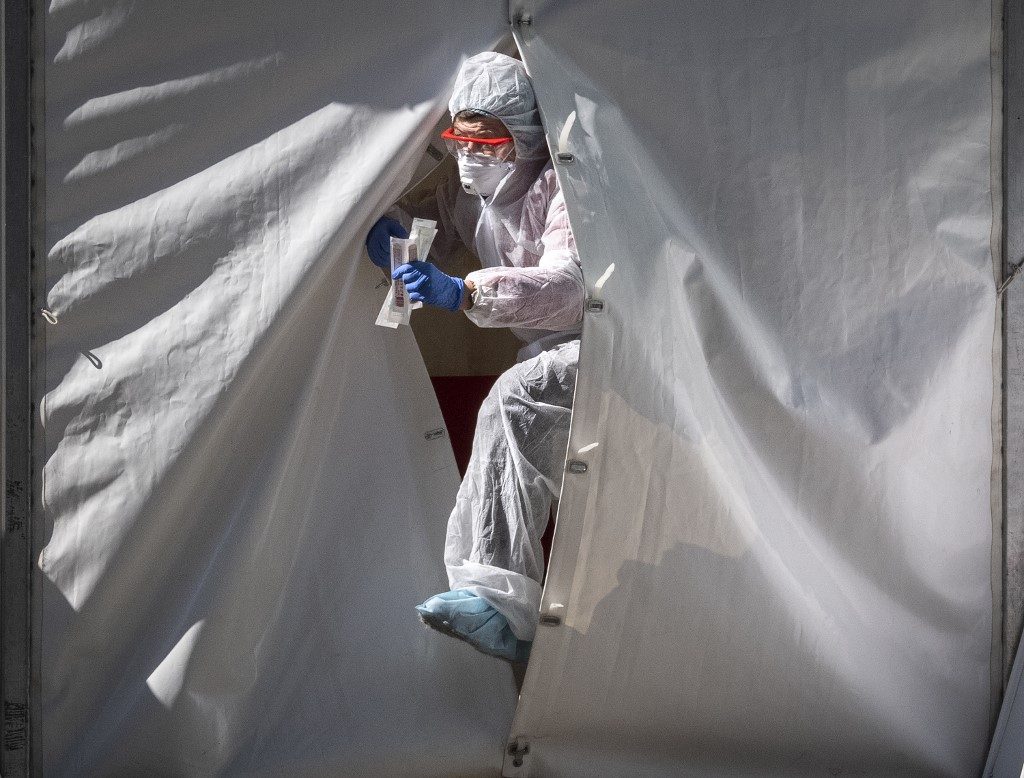SUMMARY
This is AI generated summarization, which may have errors. For context, always refer to the full article.

GENEVA, Switzerland – The UN rights chief on Tuesday, June 30, said COVID-19 was being instrumentalized to silence free speech, citing China and Russia, while voicing alarm at statements in the US that “deny the reality” of the virus.
UN High Commissioner for Human Rights Michelle Bachelet pointed to Russia, China, Kosovo, Nicaragua among others where “threats and intimidation against journalists, bloggers and civic activists, particularly at the local level, (were being used) with the apparent aim of discouraging criticism of the authorities’ responses to COVID-19.”
Bachelet also voiced concern about “severe restrictions on freedoms of expression” in Egypt and “excessive and arbitrary enforcement” of pandemic response measures in El Salvador.
“Censorship and criminalization of speech are likely to suppress crucial information needed to address the pandemic,” she told the 44th session of the United Nations Human Rights Council.
The former Chilean president said it was vital for leaders to maintain “consistent, credible and fact-based communication” with citizens, praising South Korea’s “open” approach to its pandemic response.
“In contrast, in Belarus, Brazil, Burundi, Nicaragua, Tanzania and the United States – among others – I am concerned that statements that deny the reality of viral contagion, and increasing polarization on key issues, may intensify the severity of the pandemic by undermining efforts to curb its spread,” she said.
Threat to peace
Opening the session in Geneva, Bachelet gave a global update on the COVID-19 pandemic’s impact on human rights.
“Six months after the first cases were detected, it is clear that this epidemic threatens both peace and development – and that it calls for more civil, political, economic, social and cultural rights, not less,” she said.
Bachelet said the pandemic was deepening local and regional threats to peace, with essential services, already devastated by conflict, left “acutely vulnerable” to the crisis.
Bachelet reiterated her call for the easing or suspension of sanctions “to ensure that medical care and aid is accessible to all.”
She said racial and ethnic minorities and indigenous peoples are both more likely to die of COVID-19 and were hit the hardest by its socio-economic consequences.
“This is particularly true of people of African descent,” she said.
“Too often, unjust and violent actions by law enforcement personnel reflects systemic racial discrimination that is deeply embedded in institutions across society,” she added.
In combating the virus, “discrimination kills. Depriving people of their social and economic rights, kills,” she said.
“COVID-19 is like a heat-seeking device that exposes, and is fueled by, systemic failures to uphold human rights.” – Rappler.com
Add a comment
How does this make you feel?
There are no comments yet. Add your comment to start the conversation.